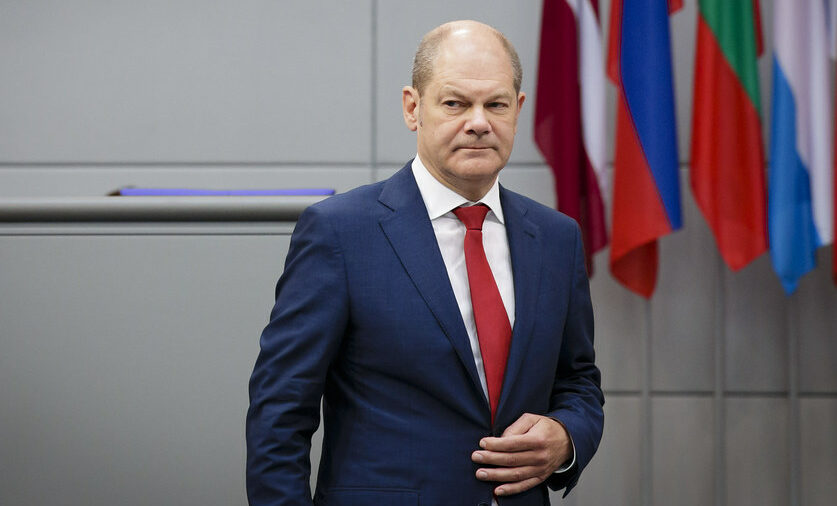Who is the economist who criticizes Scholz’s gas shield

Felbermayr, the Austrian economist at the head of WIFO in Vienna, has thoroughly criticized the German government's 200 billion euro package against expensive energy. Pierluigi Mennitti's article from Berlin
While in Prague Olaf Scholz measured the dissent, silence and approval of the leaders of European governments on the 200 billion euro sovereign bazooka that Germany is about to deploy against expensive energy, at home some economists continue to turn up their noses.
In WirschaftsWoche , the most popular business weekly in Germany, a well-known and authoritative voice justifies the concerns expressed by most other governments in Europe. this is Gabriel Felbermayr, currently director of the Austrian Institute of Economic Research (WIFO) in Vienna, until recently at the helm of one of the most authoritative German think tanks, the Institute for World Economic Research (IfW) in Kiel .
Felbermayr warned of a wrong construction of the gas price brake in Germany that could lead to a "subsidy race" in Europe. For the Austrian economist, the anger in the EU is justified and this should make Germany itself reflect, first of all because a national brake on the price of gas threatens a race for subsidies. “In Austria, so far we have deliberately opted only for the brake on the price of electricity”, he explained, “because gas is a fossil fuel that we do not want to finance. But if Germany now subsidizes gas consumption, and does so on a large scale in industry too, Austria, France, Italy and the Benelux countries will also have to follow suit. Otherwise they would find themselves at a competitive disadvantage and lose market share to Germany in an unfair and antisocial way ”.
The reasons and consequences of the German government's lonely forward flight are soon said: "The government wants to prevent Germany from deindustrialization, which is why the 200 billion package was designed to provide subsidies to keep German industry in the country," he said. continued the economist, "but at that point the other countries will be under pressure again to prevent their production from moving to Germany". Not to mention that we will find ourselves "with high subsidies everywhere, few savings effects and a gas price that continues to rise".
This is why Felbermayr considers Scholz's move antisocial: “There is at least the danger that it will become so. Stock values would be upheld, but money would be burned by frustrating real goals. Then the brake on the price of gas would in fact turn into an anti-social policy, which a Social Democratic chancellor would certainly not want to be attributed to him.
The criticism also goes to the way in which the government has prepared the package, defined by Scholz himself as "a double blow". “At least in appearance, consumers and the economy will certainly be relieved by the arrival of a brake on electricity and gas prices. But in reality, relief packages like the double hit are just a redistribution program ”.
In truth, the economist continues in the interview, the supply costs for electricity and gas are not going down, rather the government is providing temporary relief with the various packages by taking on huge new debts to reduce the burden of currently high prices. : "This is not a liberating blow that solves the problem, but a postponement to the future", and this will only "further reduce the margin of maneuver for fiscal policy".
Finally, Felbermayr also discovers the veil of hypocrisy of the special funds (which he defines as "shadow budgets") and the debt ceiling which, according to the assurances of Finance Minister Christian Lindner, Germany will return to follow from 2023. With the fact that the new The bailout fund will be provided by the Economic Stabilization Fund (WSF), Lindner is right "from a legal point of view" to see the debt brake safeguarded, "but from an economic point of view, no", explains the economist. Because these modalities, like the WSF, “are just a vehicle for circumventing the debt brake”: “Lindner may warm up the illusion of formally preserving the debt brake, but in reality he is making fun of the debt brake. It would be more honest to say that we will suspend it for another year ”.
Of course, politics cannot stand idly by in the face of such serious emergencies as the current one and Felbermayr concedes that extraordinary measures are politically inevitable: the alternative is to slip into a situation in which there is a risk of social unrest and upheaval on which they found the fortunes of extremist and undemocratic parties. "We must therefore evaluate what the lesser evil is", he adds, "the point is that this 200 billion euro package should do as much good as possible".
A special commission is working to define and present to the government the concrete measures in which to articulate the support. Felbermayr has some suggestions. Pay attention to corporate aid, because companies have ways to evade inflation: "Nothing in the world can stop them from collecting subsidies and passing prices to consumers anyway, the problem of over-subsidization had already arisen at the time of the pandemic and it will come back even now ”. And then aim for mechanisms that encourage energy saving. If "the price signals do not reach the citizens and are diluted by 200 billion euros, there can be fatal consequences, because we need to save gas and electricity that are in short supply". In Austria, part of the electricity bill is subsidized up to a certain level, and the higher consumption is charged at market prices, in order to maintain the incentives to save. A measure that Felbermayr hopes to find also among those in Germany.
This is a machine translation from Italian language of a post published on Start Magazine at the URL https://www.startmag.it/economia/felbermayr-critica-scudo-200-miliardi-germania/ on Fri, 07 Oct 2022 13:41:30 +0000.
